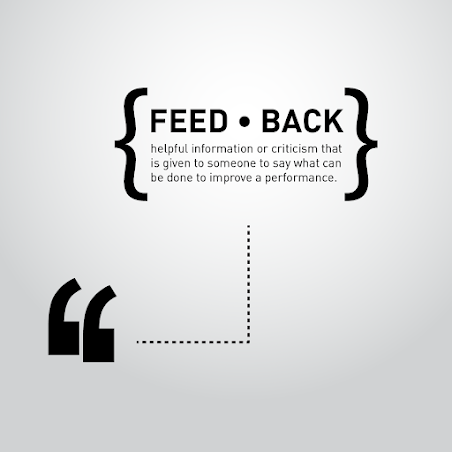Feedback Strategies
For this week we got to read two articles of our choice which talk about how to improve your ability to give feedback to others in a way that allows the person to learn from their mistakes or what they did well.
The first article I chose was Preschoolers and Praise: What Kind of Messages Help Kids Grow? by Deborah Farmer Kris, which discussed important topics of how to properly give feedback to a child in order to aid in their development into a healthy growth mindset. The article mentions one tactic that aids in giving good feedback is by replacing generic praise with process praise. An example of generic praise would be saying things like "Great work" which is very bland and doesn't give the person proper feedback on what they did well. Instead they say to replace it with more descriptive praise like "Your way of writing is amazing". This gives the person a much more clear idea of what they did well and know what to think back on when it comes to trying to further improve upon themselves.
Further down the article, it talks about how learning music is a great way of developing perseverance. I agree strongly with this point as I myself gained a lot more perseverance and mental strength by teaching myself guitar. I started off knowing nothing about the instrument and I couldn't do a single chord. Eventually after continuous attempts and constantly reassuring myself that it will take time and practice, I knew how to play my first song within the first month of teaching myself. Learning this kind of perseverance was greatly beneficial as by the time I learned my first song, I was extremely excited and proud and just kept playing it on repeat. This same kind of perseverance comes into play with facing a challenge in games too, which is why I think this kind of teaching is important to place on a child at a young age.
The other article I chose was How to Give Bad Feedback Without Being a Jerk by Adam Grant which I found beneficial not only for giving feedback to other members in the course but to other people in my life. I myself know I am terrible with confrontation as when I try to provide bad feedback, I stumble over my words or draw it out too long eventually nullifying my point. Learning these steps as to how to make the situation better for the receiver so they don't feel bad about this feedback was something I was curious in learning and thought it was explained well. Letting them know that you care about their improvement. and that you yourself are not perfect is something I can see being very comforting to the person gaining the feedback, making them more attentive and less upset. Also being confrontational and not sugar coating the issue with compliments is another important step in the feedback as it comes across as more manipulative trying to lessen their anger with positives, which will result in them getting angry with that kind of feedback process.
Getting to read these articles was defiantly helpful. Learning how to improve my ability to give feedback is something that will be useful now and in future situations, whether it be at a job or with someone in my personal life. I hope to improve in my feedback from this and be able to give much more helpful criticism to others in our course.



Comments
Post a Comment